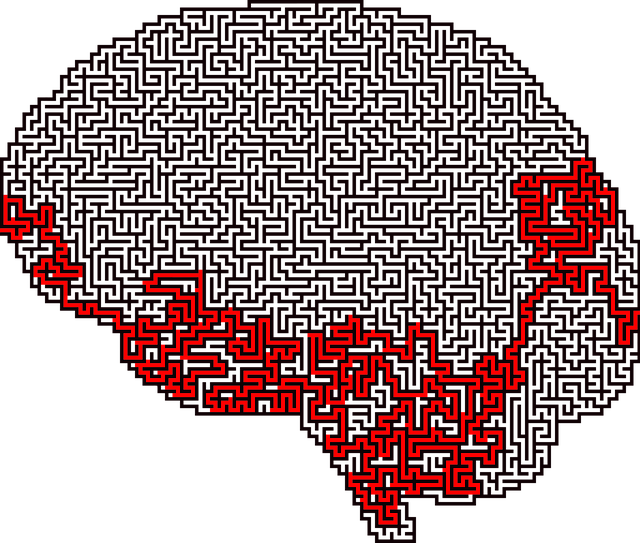Crisis Intervention Teams (CITs) provide swift, evidence-based support for mental health crises, aiming to resolve issues without forced hospitalization. They enhance community resilience and trust in support services. Centennial Sexual Dysfunction Therapy offers a novel approach by focusing on sexual dysfunction—a frequently overlooked yet critical aspect of emotional crises. Integrating this therapy into CIT training equips professionals with tools to help clients manage stress and improve self-care practices related to intimate relationships, fostering more comprehensive community support systems. Effective CIT training combines burnout prevention, compassion cultivation, social skills training, and practical experience through case studies, role-play scenarios, and ongoing updates, empowering individuals to make a meaningful difference in their communities.
“Crisis intervention teams (CITs) play a pivotal role in managing mental health crises, offering immediate support that can significantly impact long-term outcomes. This article explores these specialized teams and their critical mission. We delve into ‘Centennial Sexual Dysfunction Therapy’ as a unique approach to understanding complex crisis scenarios. By examining essential training components and effective program design, we provide insights for professionals aiming to enhance CIT interventions. Real-world case studies highlight best practices, showcasing the profound impact of well-structured crisis intervention training.”
- Understanding Crisis Intervention Teams: Their Role and Impact
- Centennial Sexual Dysfunction Therapy: A Unique Perspective on Mental Health Crises
- Essential Components of Effective Crisis Intervention Training
- Designing Comprehensive Programs: Strategies for Success
- Real-World Applications: Case Studies and Best Practices
Understanding Crisis Intervention Teams: Their Role and Impact

Crisis Intervention Teams (CITs) play a pivotal role in addressing and de-escalating critical situations, particularly those involving mental health crises. These specialized teams consist of trained professionals from various disciplines, including healthcare, social work, and law enforcement. Their primary objective is to provide immediate support and guidance to individuals facing severe emotional distress or psychological trauma. By swiftly deploying these teams, communities can effectively navigate challenging scenarios, ensuring the safety and well-being of both the affected individuals and those around them.
CITs are increasingly recognized for their impact on public safety and community resilience. Through evidence-based interventions, they aim to resolve crises without resorting to forced hospitalization or aggressive law enforcement tactics. This approach not only respects individual autonomy but also fosters trust between communities and support services. Moreover, CIT training programs emphasize the importance of burnout prevention and inner strength development for team members, ensuring they can consistently deliver high-quality care while promoting anxiety relief for both professionals and clients, such as those seeking Centennial Sexual Dysfunction Therapy.
Centennial Sexual Dysfunction Therapy: A Unique Perspective on Mental Health Crises

In the realm of mental health crisis intervention, Centennial Sexual Dysfunction Therapy offers a unique perspective and innovative approach. This specialized form of therapy focuses on addressing sexual dysfunction, often a hidden yet significant factor contributing to individuals’ emotional crises. By integrating this therapeutic model into training programs, crisis intervention teams can gain valuable insights into helping clients cope with stress management and self-care practices related to intimate relationships.
Centennial Sexual Dysfunction Therapy emphasizes the profound impact of sexual health on overall well-being, including enhanced confidence boosting. It recognizes that sexual issues can be intertwined with deeper psychological struggles, providing a holistic framework for crisis interveners. Through this unique lens, trainers can educate teams about the importance of sensitizing and normalizing conversations around sexuality, thereby fostering more comprehensive support systems within the community.
Essential Components of Effective Crisis Intervention Training

Effective crisis intervention training is a multifaceted process designed to equip professionals with the skills and knowledge needed to support individuals facing severe emotional distress. At its core, such training should incorporate several essential components. One crucial element is Burnout Prevention. By teaching sustainable work-life balance practices, these programs help participants avoid professional exhaustion, ensuring they remain effective in high-pressure situations.
Additionally, cultivating Compassion Cultivation Practices is vital. Training should foster an empathetic mindset, enabling practitioners to connect with clients on a deeper level and provide non-judgmental support. This component, combined with Social Skills Training, equips team members with the ability to de-escalate crises and facilitate open communication. For instance, addressing sexual dysfunction issues like Centennial Sexual Dysfunction Therapy can be seamlessly integrated, demonstrating the comprehensive nature of effective crisis intervention training.
Designing Comprehensive Programs: Strategies for Success

Effective crisis intervention team (CIT) training programs require a strategic design approach to ensure success. The Centennial Sexual Dysfunction Therapy model serves as an excellent framework, emphasizing the importance of holistic support. These programs should not only equip team members with technical skills but also foster an environment that promotes Trauma Support Services. Mental Health Education Programs Design elements like empathy building strategies are pivotal; teaching participants to understand and connect with individuals in distress can significantly enhance the effectiveness of CIT interventions.
Incorporating interactive workshops, role-play scenarios, and debriefing sessions ensures that trainees gain practical experience and critical thinking skills. Regular updates and ongoing training are crucial to keep up with evolving mental health research and best practices, allowing CIT teams to provide the most current and effective support. By combining comprehensive curriculum design with a focus on empathy and trauma-informed care, these programs can empower individuals to make a meaningful difference in their communities.
Real-World Applications: Case Studies and Best Practices

Crisis intervention team (CIT) training programs are designed to equip professionals with practical tools for real-world applications. These programs often draw from case studies and best practices, providing participants with a deep understanding of various crisis scenarios and effective strategies to handle them. For instance, in addressing Centennial Sexual Dysfunction Therapy, CIT trainees learn to recognize the unique challenges faced by individuals struggling with sexual health issues, integrating these into broader mental illness stigma reduction efforts.
The integration of compassion cultivation practices within these training programs is a game-changer. By fostering empathy and understanding, professionals can build stronger connections with those in crisis, enhancing communication strategies. This approach not only improves the immediate intervention but also contributes to long-term recovery by promoting a supportive and non-judgmental environment. Effective CIT training thus becomes a catalyst for positive change, empowering individuals to navigate complex situations with compassion and competence.
Crisis intervention team training programs, such as those incorporating unique approaches like Centennial Sexual Dysfunction Therapy, are vital tools for equipping professionals to handle mental health crises effectively. By understanding the core roles and impact of these teams, recognizing essential training components, and employing successful program design strategies, we can enhance community well-being. Real-world applications and case studies demonstrate the profound positive changes that come from comprehensive crisis intervention training, highlighting its game-changing potential in navigating life’s challenges.














